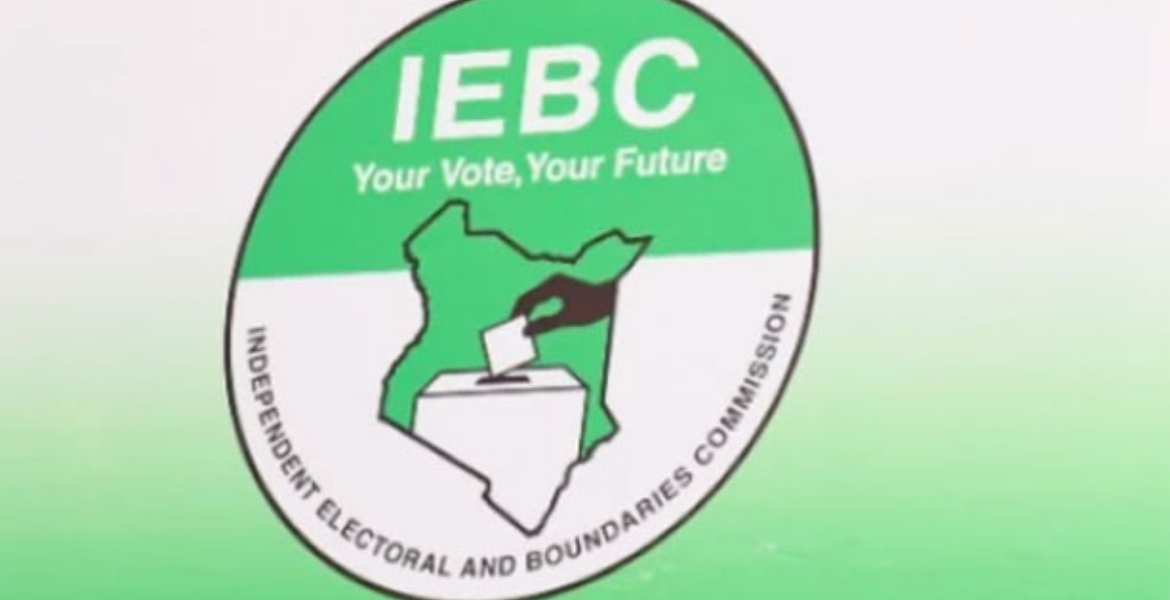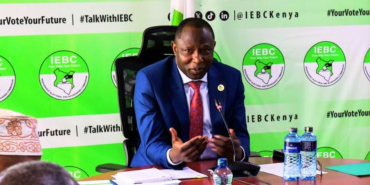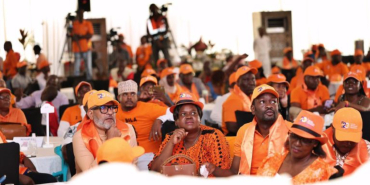IEBC Targets Gen Z as Voter Registration for 2027 Elections Begins Monday

The Independent Electoral and Boundaries Commission (IEBC) will on Monday, 29 September, begin a nationwide Continuous Voter Registration (CVR) campaign aimed at registering more than 6.3 million new voters ahead of the 2027 General Election.
IEBC Chairperson Erastus Ethekon announced that the registration exercise will take place across the country, excluding the 24 constituencies scheduled to hold by-elections on 27 November. The Commission aims to expand the current voter roll from 22.1 million to include newly eligible citizens, particularly young people expected to vote for the first time.
“The Commission aims to expand the current voter register from 22.1 million to include an additional 6.3 million eligible citizens,” said Mr Ethekon, adding that a credible electoral process depends on a comprehensive and accurate register.
The initiative comes amid growing national focus on Kenya’s youth, especially the “Gen Z” generation, which has played a prominent role in recent political activism. With an estimated 14 million Gen Z voters expected to be eligible in 2027, political leaders across the spectrum are urging young citizens to take part in the registration process.
Speaking at an opposition convention, former Justice Minister Eugene Wamalwa encouraged young Kenyans to move from digital advocacy to formal civic participation. “Saying ‘one term’ is not enough. Get your ID, register to vote, and be the change you want,” he said.
Similar appeals were made by other senior figures, including former Vice President Kalonzo Musyoka and former Deputy President Rigathi Gachagua. The push for increased voter registration follows a notable decline in turnout during the 2022 General Election, when only 14.3 million of the 22.1 million registered voters cast their ballots.
Analysts have linked the low participation to voter apathy, especially among youth, many of whom cite frustrations with governance and economic challenges. Observers note that if younger voters register and turn out in large numbers, they could significantly influence the outcome of the 2027 elections. Historically, Kenyan voting patterns have often been shaped by ethnic and regional affiliations, but a shift driven by youth engagement could alter that dynamic.
“Kenya may be on the cusp of a generational shift in its politics,” said Professor Tom Nyamache of Turkana University. “For the first time in recent memory, an election could be determined not by tribal coalitions, but by a youthful electorate demanding accountability and reform.”
To reach its target, the IEBC will employ a multi-pronged strategy that includes voter registration services at constituency-level IEBC offices, partnerships with Huduma Centres, and outreach campaigns at the ward level. Registration will take place on weekdays between 8 am and 5 pm. To register, individuals must be Kenyan citizens aged 18 or older, hold a valid national identity card or passport, and must not be registered elsewhere.
Those convicted of election-related offences within the past five years or those declared of unsound mind are not eligible. In addition to new registrations, the IEBC will also allow existing voters to update personal details, change polling stations, and verify information either in person or through the Commission’s online portal.
For Kenyans living abroad, registration is limited to those holding valid passports. However, citizens residing in East African countries may use their national ID cards. This policy has drawn scrutiny in Parliament, where MPs have questioned the restriction and warned that many in the diaspora may lack valid passports.
Addressing the National Assembly’s Constitutional Implementation Oversight Committee, Mr Ethekon reaffirmed the Commission’s commitment to a transparent and inclusive registration process, in accordance with Article 88(4)(a) of the Constitution, which mandates continuous voter registration.
“This is a defining moment for our democracy,” said Committee Chairperson Mr Omondi. “If the youth want change, this is their opportunity. Registration is not just a right—it is a responsibility.”
Both government and opposition leaders have launched public campaigns urging young people to register, stressing that meaningful political change requires formal participation through the electoral process.








Add new comment